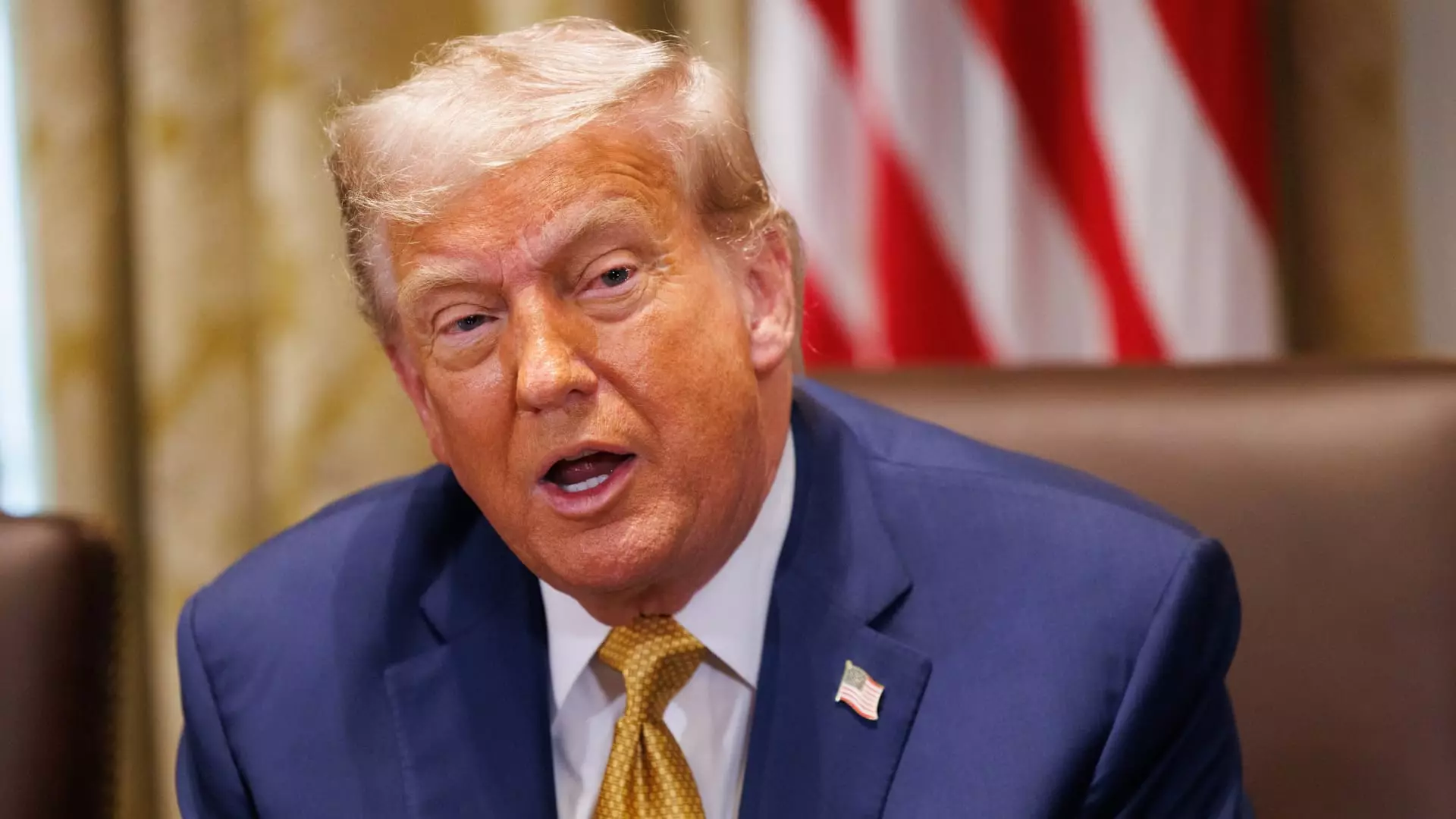In recent developments, President Donald Trump has resurfaced his aggressive stance on reshaping America’s pharmaceutical landscape through high tariffs, threatening to impose tariffs up to 200% on imported drugs. This move, part of a broader nationalist approach, signals a decisive pivot towards protecting domestic manufacturing but raises substantial concerns about unintended consequences. Trump’s rhetoric hinges on the premise that tariffs will incentivize pharmaceutical companies to bring manufacturing back into the United States, ostensibly fueling economic growth and national security. However, this perspective underestimates the complex dynamics of the pharmaceutical industry, which is intricately linked with global supply chains, innovation, and affordability. Center-right wing thinkers might argue that such tariffs are a necessary tool to reduce dependency on foreign imports, especially in critical sectors like healthcare. Yet, the risk of impending disruptions to drug availability and rising costs can undermine these lofty aims, revealing a fundamental misjudgment of the market’s interconnected nature.
Market Reality vs. Political Promises
Top executives and financial analysts have responded with cautious skepticism. Pharmaceutical stocks have held their ground, not reacting dramatically to Trump’s pronouncements, underscoring uncertainty about the administration’s resolve and the feasibility of immediate implementation. Industry experts warn that hastily imposed tariffs could backfire, increasing costs for consumers, escalating the price of essential medicines, and stifling innovation by discouraging investment. While Trump claims tariffs will rejuvenate American manufacturing, the industry—already strained by drug pricing policies—argues that such measures could do more harm than good. The industry’s pushback isn’t mere resistance to tariffs; it’s rooted in the understanding that aggressive trade policies could disrupt the delicate ecosystem of drug development, which relies heavily on international collaborations, diversified supply chains, and global markets.
National Security or Economic Sabotage?
The invocation of Section 232 to justify tariffs echoes a broader nationalist view that economic security equates with self-sufficiency. But this framing simplifies the multifaceted nature of pharmaceutical security, which depends as much on innovation, research, and skilled workforce as it does on manufacturing plants. Critics argue that Trump’s tactic to frame tariffs as a security measure is a populist misdirection, leveraging fears to pursue a protectionist agenda that could ultimately weaken the industry’s global competitiveness. This approach risks fostering a protectionist environment that depreciates the benefits of open markets, potentially alienating allies and trading partners. The real question becomes: are these tariffs a strategic necessity or a political maneuver designed to appeal to domestic industries at the expense of broader economic interests? In a global sector such as pharmaceuticals, the latter seems to threaten to erode America’s leadership and innovation capacity in the long term.
The Politics of Economic Revival: Short-sighted or Strategic?
President Trump’s promises of revitalizing American manufacturing through tariffs need to be examined through a pragmatic lens. While the rhetoric promises a bold shift inward, the reality reveals a more nuanced picture. A sizable portion of pharmaceutical manufacturing has already begun shifting back to the U.S., not because of tariffs, but due to genuine strategic considerations like quality control, regulatory environments, and proximity to innovation hubs. Imposing extreme tariffs could, paradoxically, hinder this momentum by increasing costs arbitrarily. Moreover, given the administration’s history of changing course, the certainty of these tariffs materializing remains questionable. The industry’s leadership—aware of the geopolitical and economic complexities—remains wary, emphasizing that sustainable growth depends on balanced policies that promote innovation, reduce regulatory burdens, and foster free trade, rather than resorting to economic nationalism with unpredictable and potentially destructive consequences.
The Broader Implications for American Competitiveness
The debate over tariffs in the pharmaceutical sphere exemplifies the tension between protectionist impulses and global economic reality. While the desire to bolster American manufacturing is understandable, the path chosen—heavy tariffs—risks undermining the very innovation and investment needed for long-term competitiveness. These policies could set a perilous precedent, signaling to investors that a rapidly shifting trade environment is a gamble rather than a stable foundation for growth. From a center-right perspective that values strategic nationalism but recognizes the value of open markets, this approach must be tempered with a recognition that sustainability and competitiveness are rooted in innovation, investment, and international collaboration—not tariffs set at arbitrary levels. Policing the borders and pushing manufacturing home is appealing in its simplicity but ultimately insufficient to address the complex global challenges facing the pharmaceutical industry and the American economy at large.

